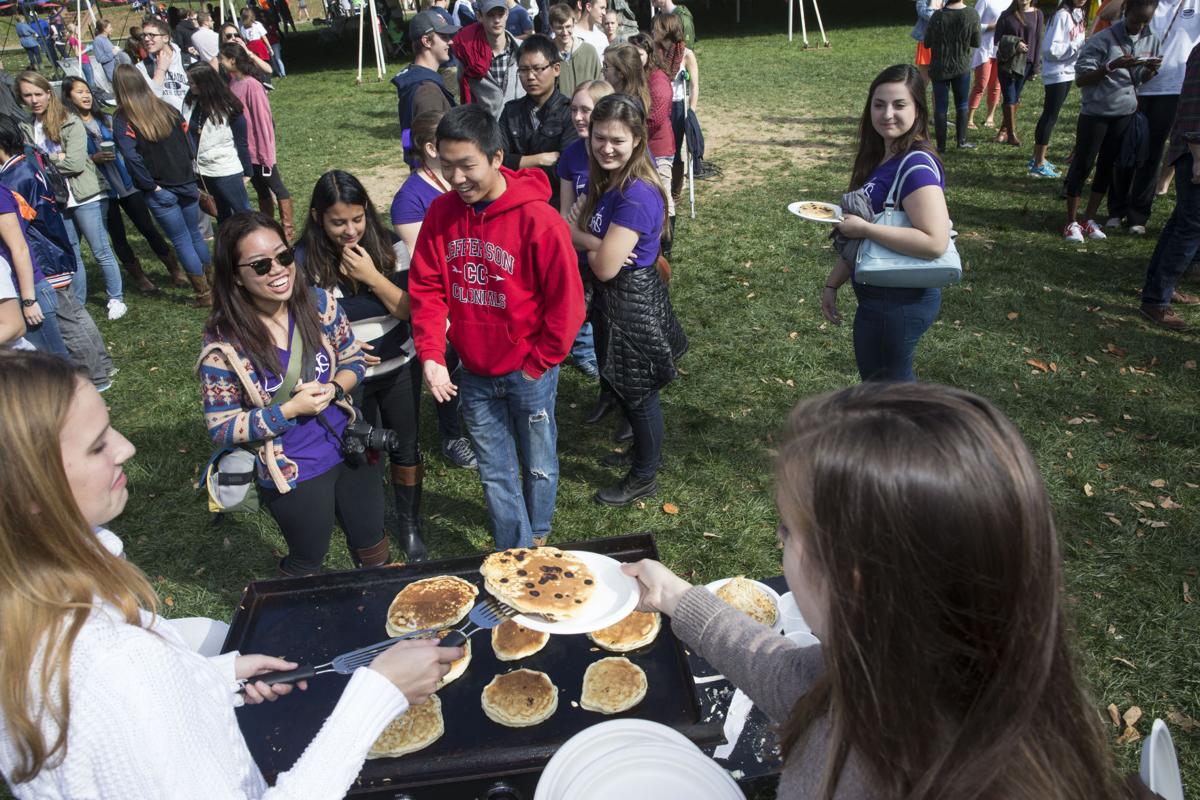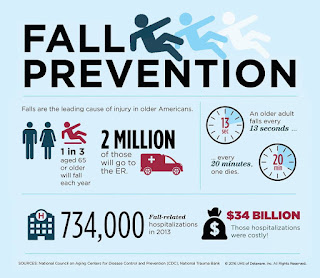Generation Us: Pancakes for Parkinson's flips hotcakes for a cause

The annual Pancakes for Parkinson's fundraiser is a breakfast-friendly benefit for the Michael J. Fox Foundation. Photo by Dan Addison/UVa University Communications. #nosale
Dan Addison/UVa University Communications
Pancakes for Parkinson’s has become a homecoming weekend tradition at the University of Virginia, sending thousands of students from griddle to gridiron in a festive mood. It’s also an opportunity to welcome community members of all ages to the UVa Grounds, and organizers want to make sure one group in particular feels right at home.
People with Parkinson’s disease are the day’s VIPs, said Marcia Aulebach, local representative for Team Fox, the Michael J. Fox Foundation’s grassroots outreach program.
The fundraiser on UVa’s South Lawn typically draws 3,000 to 5,000 people, luring students and local residents alike with flapjacks and fun. And if you’re a VIP driving along University Avenue near St. Paul’s Memorial Church to get to the fundraiser, look for signs pointing to “Parkinson’s-only” saved parking areas. Volunteers will direct you and bring you to reserved tables, where you’ll find fellowship and free pancakes.
One hundred percent of the proceeds will go to the Michael J. Fox Foundation, which supports research to find a cure for the degenerative brain disorder and clinical studies that can help develop new treatments for troubling symptoms, such as having difficulty swallowing. Over the past decade, UVa’s event has raised more than $346,000 for the foundation; in 2007, Team Fox adopted it as a national fundraiser.
Students pitch in by flipping pancakes, and student groups entertain the crowd by singing a cappella music, dancing and presenting theater pieces. Co-presidents Henry Crochiere and Reilly Sheehan and their team spend most of the year planning the event, presenting additional fundraisers and reaching out to alumni and community members. This year, they’ve extended invitations to counties surrounding Albemarle, knowing that more folks whose family members and friends are battling Parkinson’s disease will want to get involved.
Like the foundation’s founder, film and television star Michael J. Fox, Aulebach was diagnosed as a young person. She sees the student-powered fundraiser as an opportunity to remind people of all ages that Parkinson’s isn’t just an older person’s condition.
Parkinson’s disease develops when a person’s brain gradually stops producing dopamine, a neurotransmitter that helps regulate movement and emotions. A variety of genetic and environmental factors can prompt the slowdown in dopamine production — head trauma; exposure to certain chemical agents and neurotoxins through farming, industrial work or military service; inherited gene mutations that can raise the risk of developing the disorder if the right circumstances align.
Armed with knowledge and appropriate medicines, people with Parkinson’s “live active lives,” said Aulebach, who was diagnosed a decade ago. “We have children and marriages. We go to grad school. We work.”
The signs of the disorder can vary from person to person; one person may have more outward signs, such as tremors or balance problems, while others battle depression. All can benefit from advances in treatments and tools and expanded knowledge that come from ongoing research funded by events like UVa’s.
For instance, “I’m the second woman in the United States to own a service dog for Parkinson’s,” Aulebach said. Her specially trained dog helps her navigate stairs safely, and she also warns Aulebach when seizures are coming.
Aulebach is proud of the UVa students who participate in Pancakes for Parkinson’s. They come from a variety of academic disciplines — engineering, history, media, criminal justice and medicine, to name a few — and share a desire to help people and push for a cure.
“The students are terrific. They make it fun,” she said.
Donations will be accepted for the Michael J. Fox Foundation. Learn more about the event online at p4patuva.
Jane Dunlap Sathe is the features editor for The Daily Progress. Contact her at (434) 978-7249 or jsathe@dailyprogress.com




